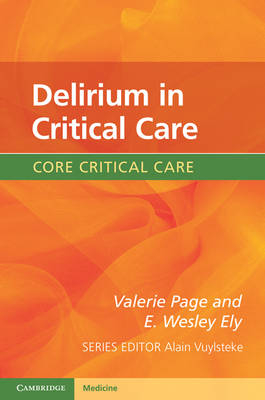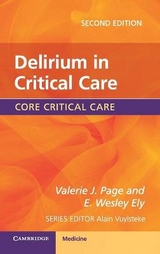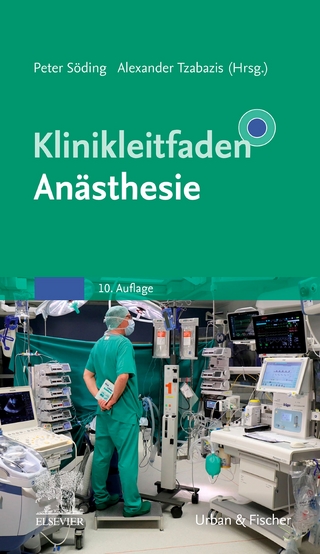
Delirium in Critical Care
Cambridge University Press (Verlag)
978-0-521-13253-4 (ISBN)
- Titel erscheint in neuer Auflage
- Artikel merken
Delirium is a common clinical problem in critical care patients, with up to 80% of patients experiencing at least one episode during their time on a critical care unit. It is associated with significantly adverse outcomes for patients, including death and long-term cognitive impairment equivalent to at least a mild dementia. This clinical handbook explains why delirium goes unrecognised in most ICUs and describes simple tools the bedside clinician can use to detect it, even in the ventilated patient. It is in an easy-to-read format and illustrated with figures, case reports and patient testimony. This book contains all you need to know in order to prevent, diagnose and manage delirium in your patients. Delirium in Critical Care is essential reading for all members of the intensive care multidisciplinary team, including senior and junior physicians, and nurses.
Valerie Page is Consultant in Critical Care, Watford General Hospital, West Hertfordshire Hospitals NHS Trust, UK. Wesley Ely is Professor of Medicine, Division of Allergy, Pulmonary, and Critical Care Medicine, Vanderbilt University School of Medicine and Vanderbilt University Medical Center, Nashville, Tennessee, USA.
Foreword; Part I. What is Delirium in Critical Care?: 1. Delirium as acute brain failure; 2. DSM IV criteria; 3. History; 4. Terminology in critical care; Part II. Delirium in Critical Care - How Common Is It?: 5. Incidence and prevalence in different critical care populations; 6. Duration; Part III. Delirium in Critical Care - What Does It Look Like?: 7. Hyperactive, hypoactive, mixed motoric subtypes; 8. Clinical examples; Part IV. Delirium in Critical Care - How Does It Happen?: 9. Pathophysiology, including theories for septic encephalopathy, cortisol, modulation immune system; Part V. Delirium in Critical Care - What Causes It?: 10. Risk factors, predisposing and precipitating; Part VI. Delirium in Critical Care - Why Is It Important?: 11. Adverse outcomes; 12. Independent predictor mortality; 13. Association with long-term cognitive impairment; 14. Diagnosing new morbidity in patients; 15. Impact on relatives and family; Part VII. Delirium in Critical Care - How Do We Diagnose It?: 16. Screening tools, CAM-ICU, ICDSC and even NEECHAM (not useful in intubated patients); Part VIII. Delirium in Critical Care - How Do We Prevent It?: 17. Multi-component interventions to minimise predisposing risk factors; 18. Drugs used for sedation; Part IX. Delirium in Critical Care - How Do We Treat It?: 19. Identifying and treating precipitating cause; 20. Antipsychotics; 21. Do we need to involve a psychiatrist?; Part X. Delirium in Critical Care and the Law: 22. Mental capacity and ability to make choices; 23. End of life care in delirious patients; Part XI. Delirium in Critical Care - What's Its Future In Critical Care?: 24. Routine screening in ICUs, early management; 25. New ways of giving old sedative drugs, new drugs; 26. Research into whether treating delirium, decreasing duration improves outcomes; 27. Follow up cognitive assessment; Index.
| Erscheint lt. Verlag | 17.2.2011 |
|---|---|
| Reihe/Serie | Core Critical Care |
| Zusatzinfo | 20 Tables, black and white; 25 Line drawings, black and white |
| Verlagsort | Cambridge |
| Sprache | englisch |
| Maße | 123 x 186 mm |
| Gewicht | 260 g |
| Themenwelt | Medizin / Pharmazie ► Medizinische Fachgebiete ► Anästhesie |
| Medizin / Pharmazie ► Medizinische Fachgebiete ► Intensivmedizin | |
| Schlagworte | Delirium • Intensivmedizin |
| ISBN-10 | 0-521-13253-3 / 0521132533 |
| ISBN-13 | 978-0-521-13253-4 / 9780521132534 |
| Zustand | Neuware |
| Haben Sie eine Frage zum Produkt? |
aus dem Bereich



